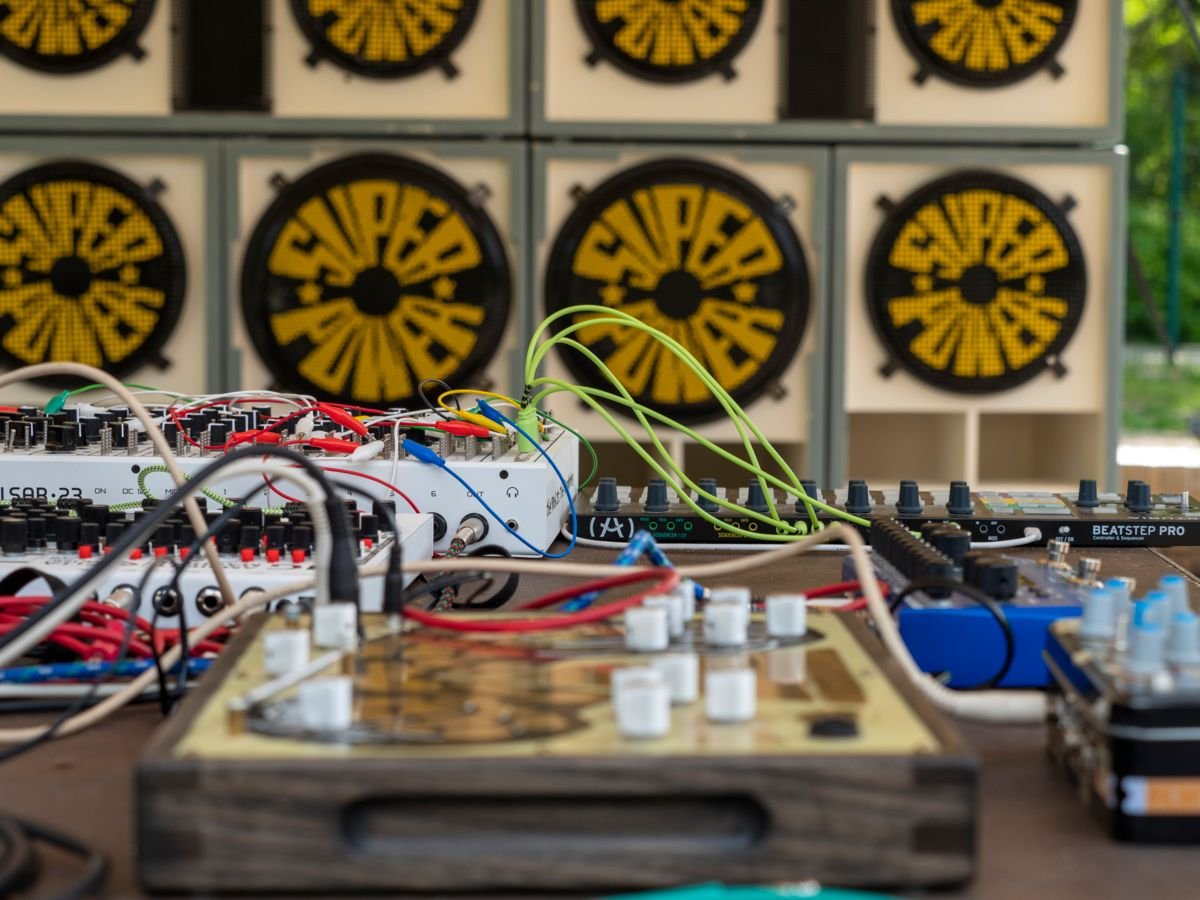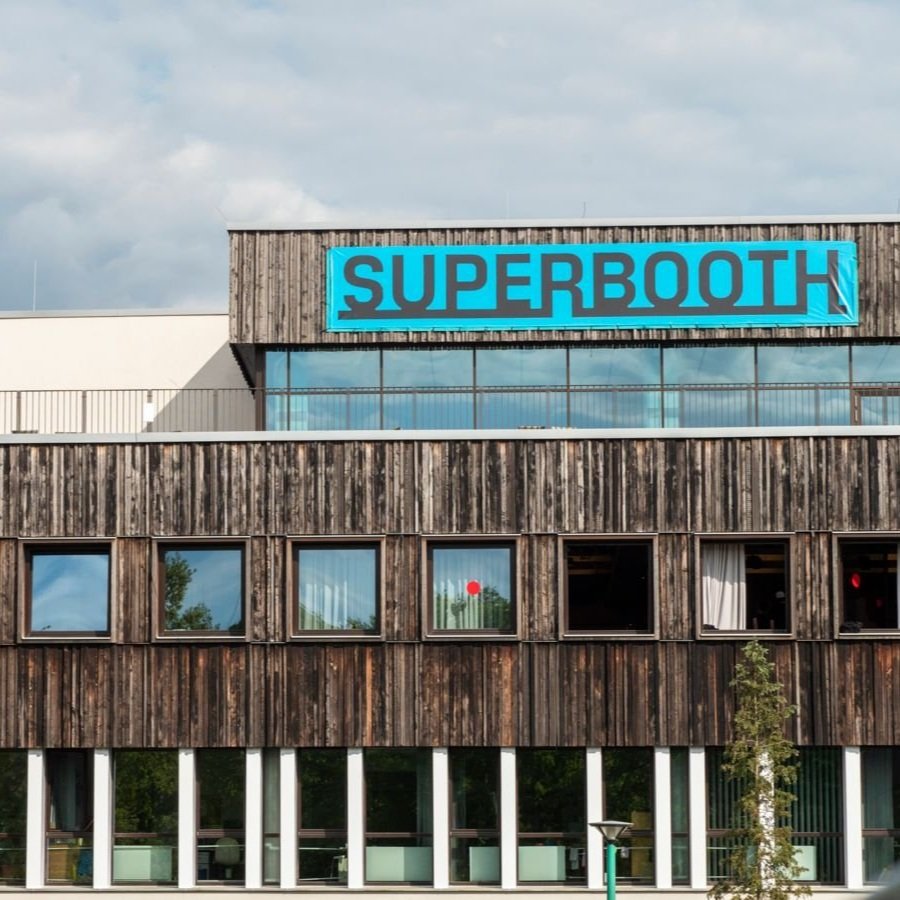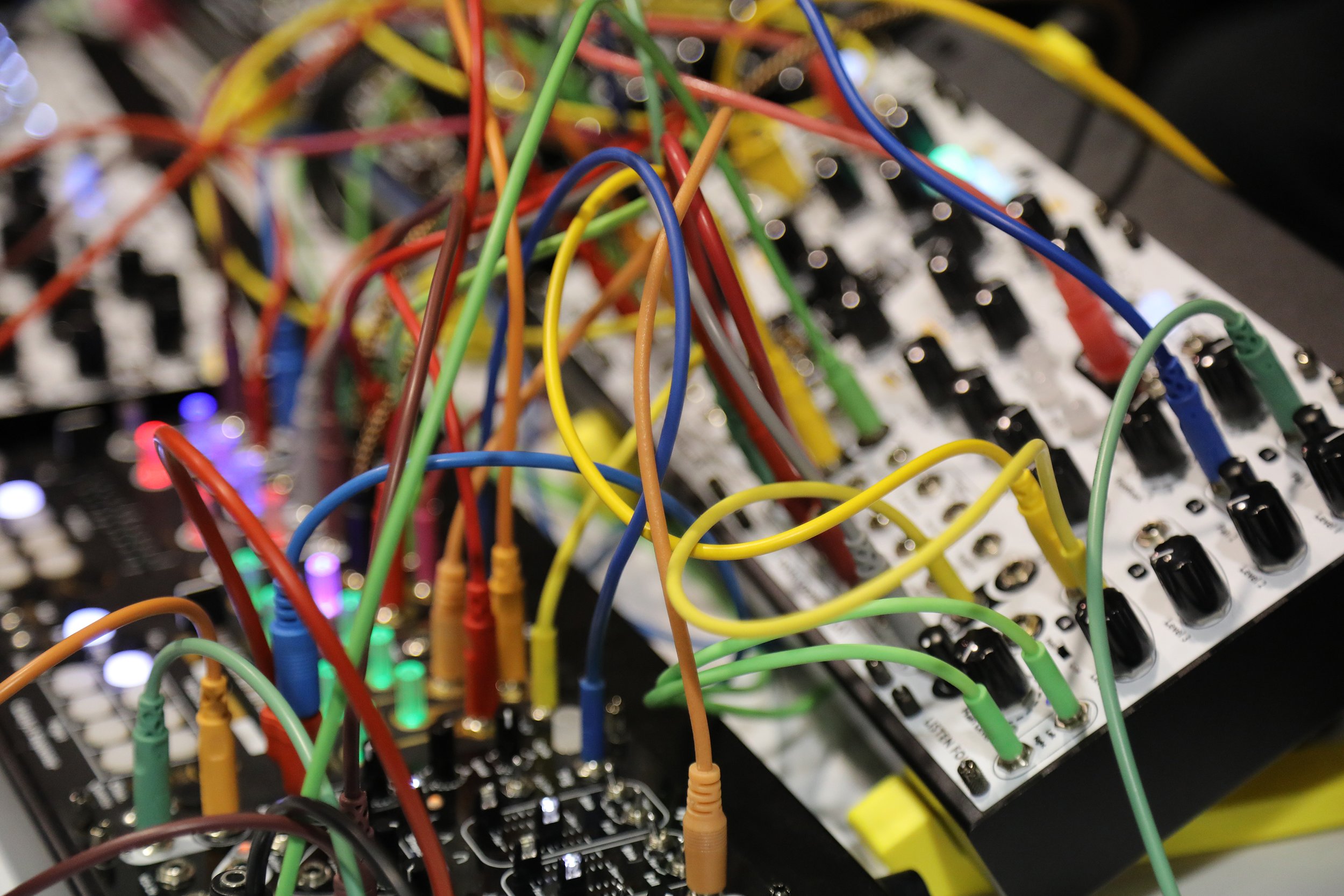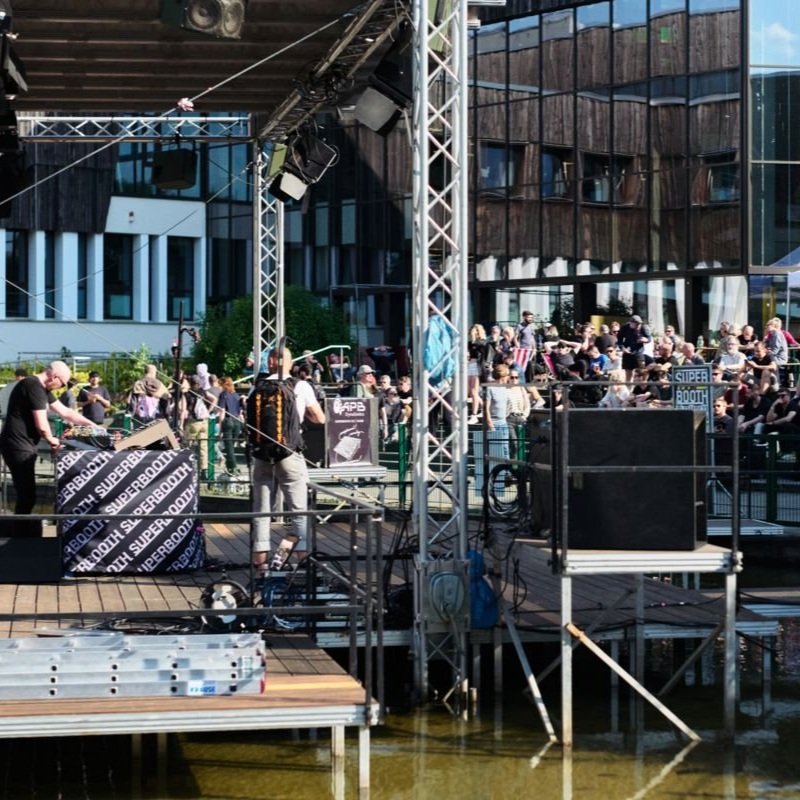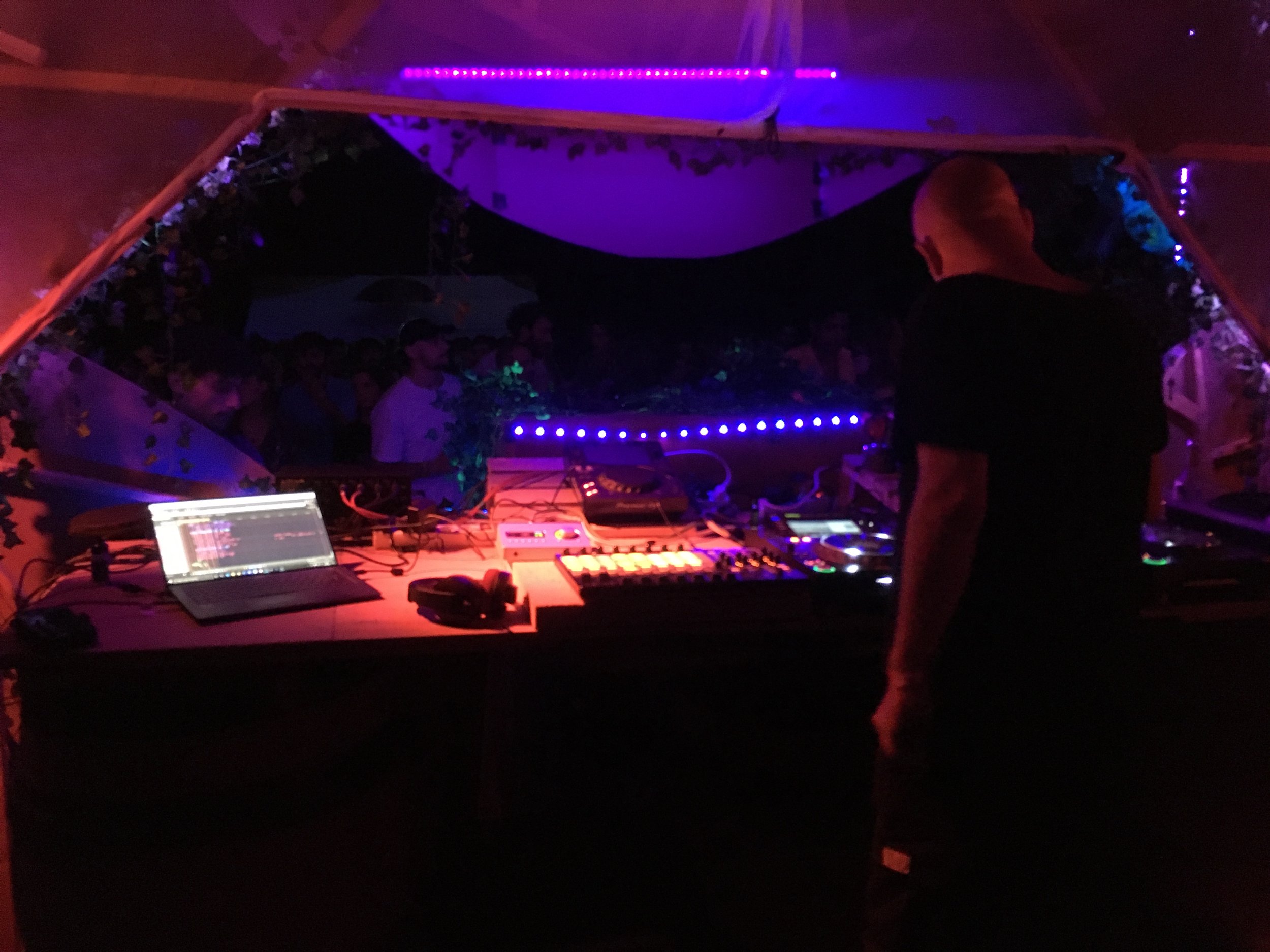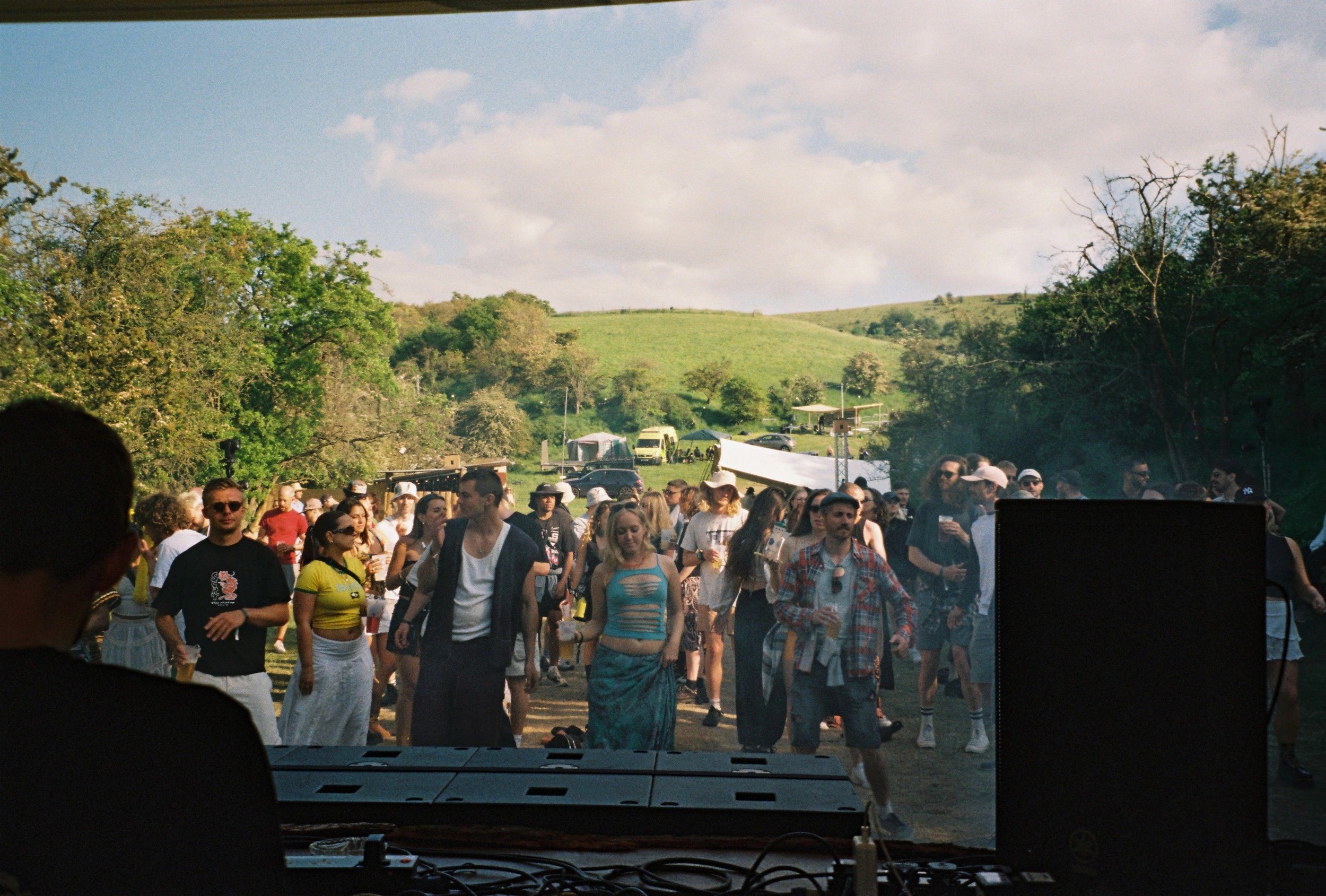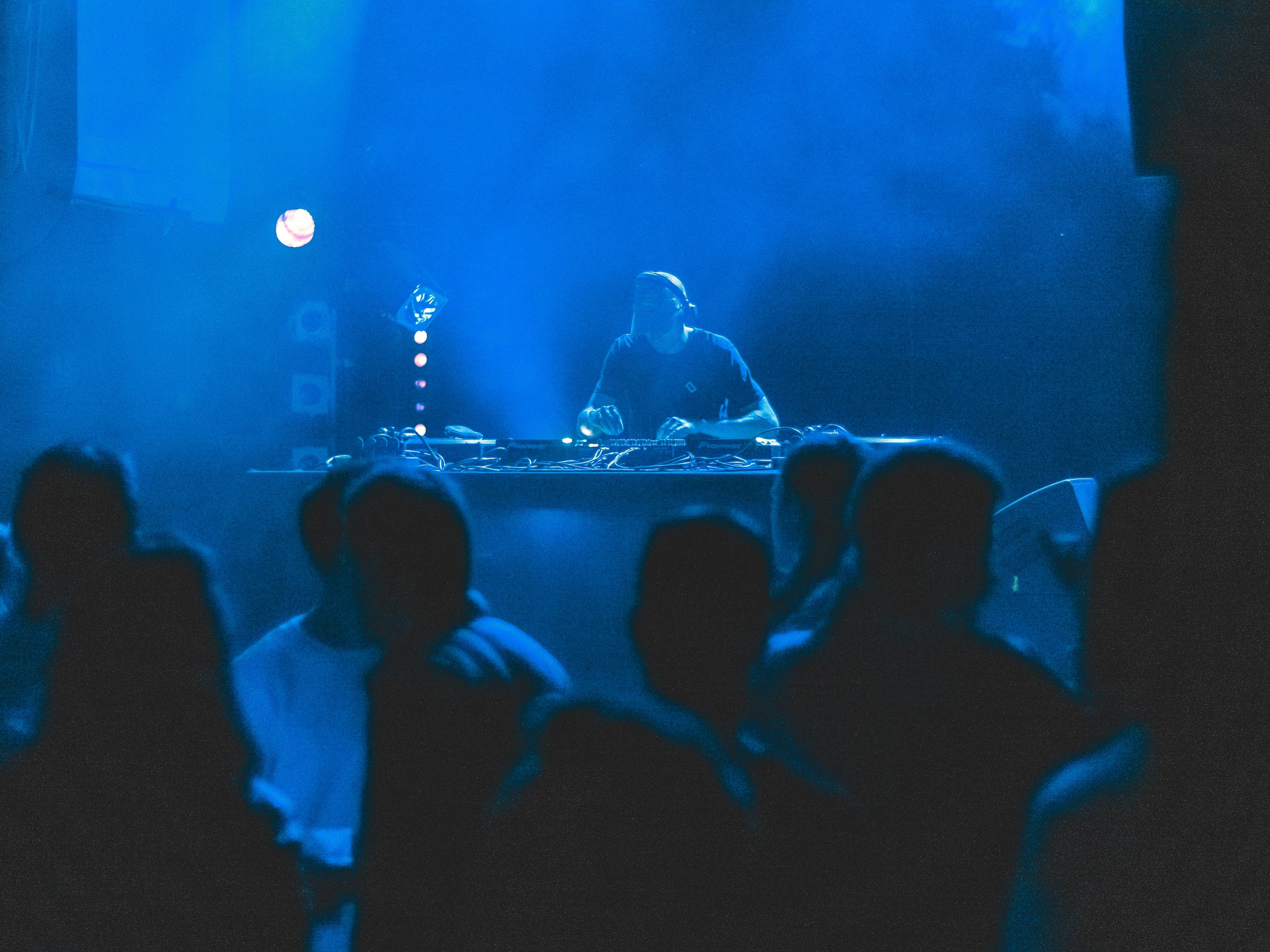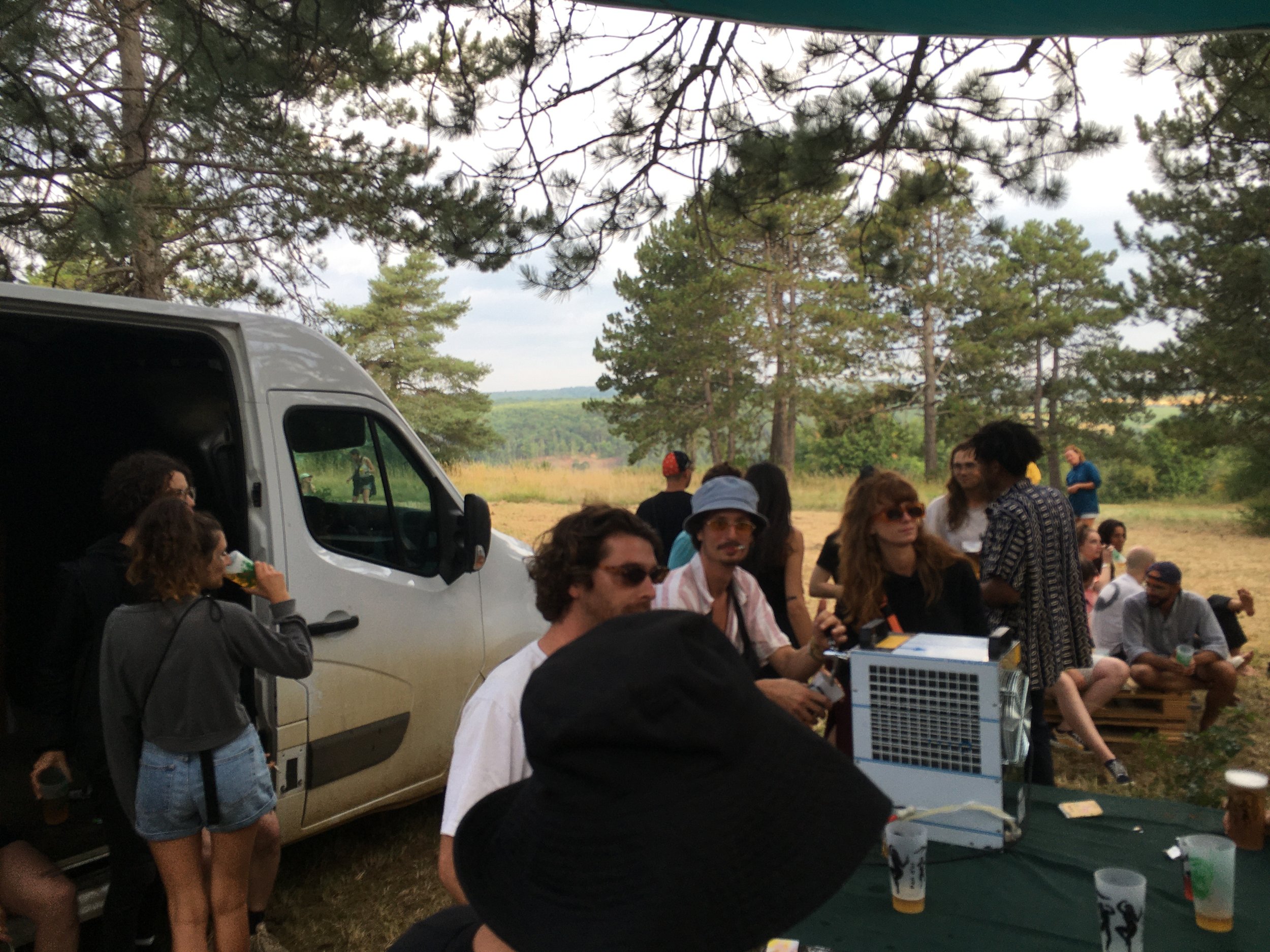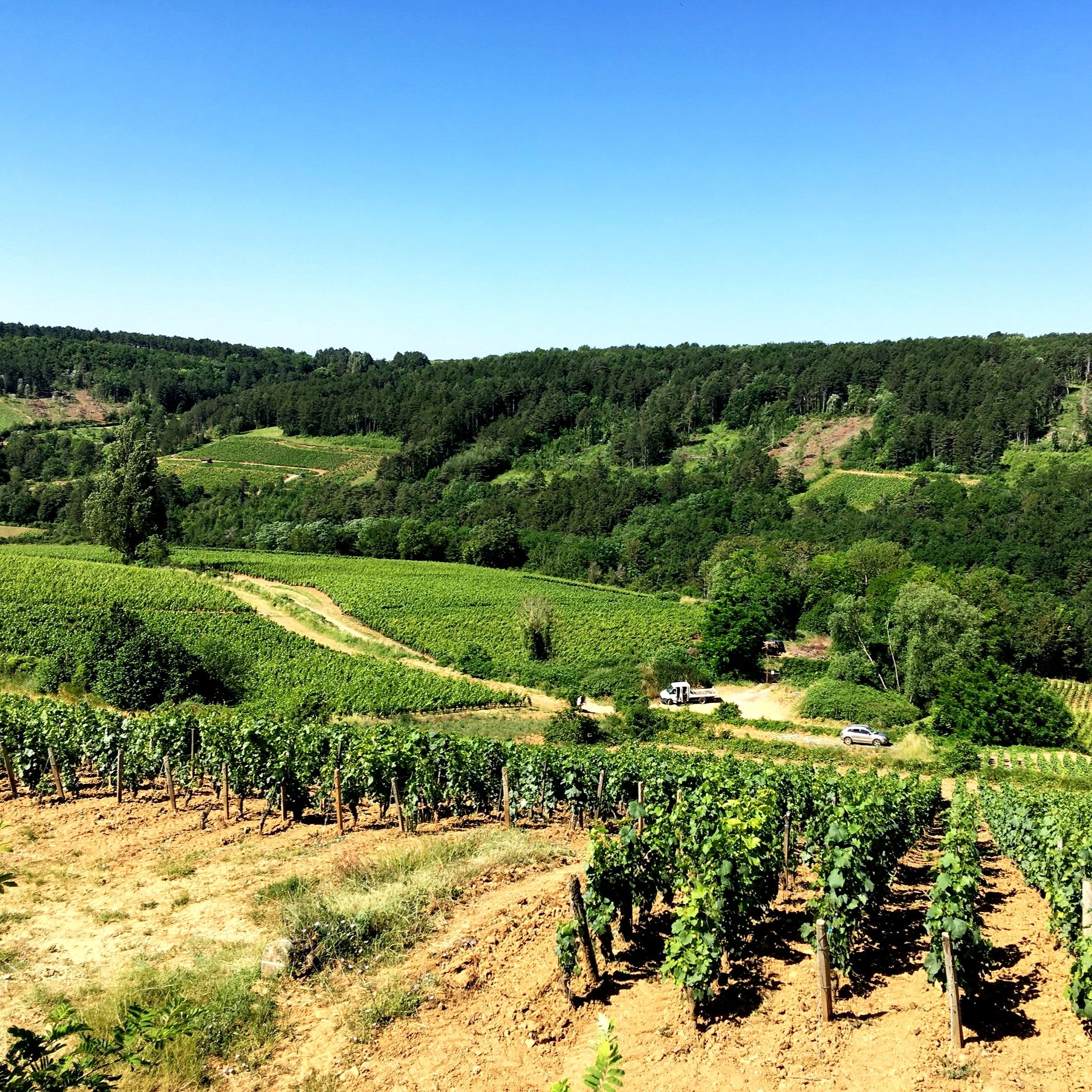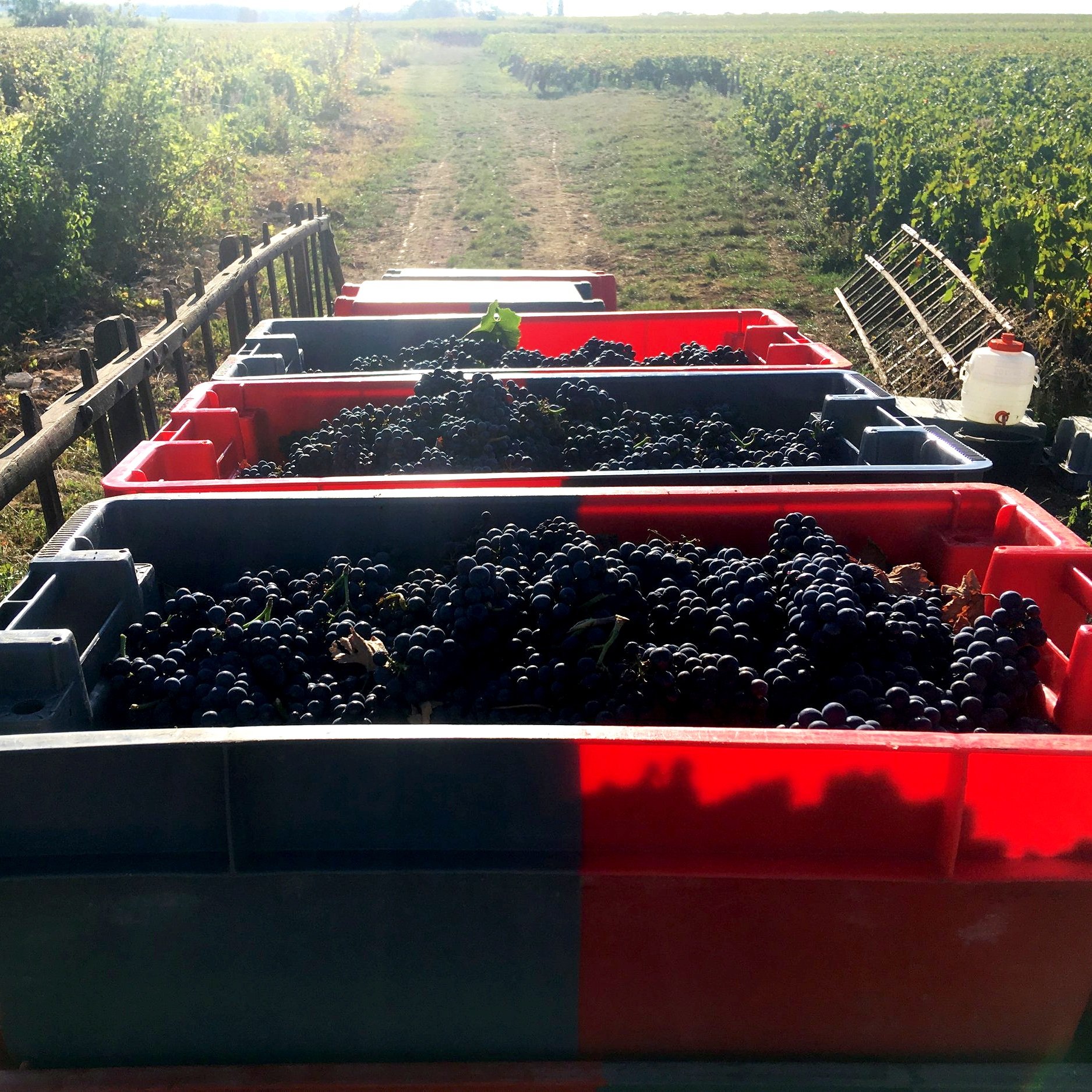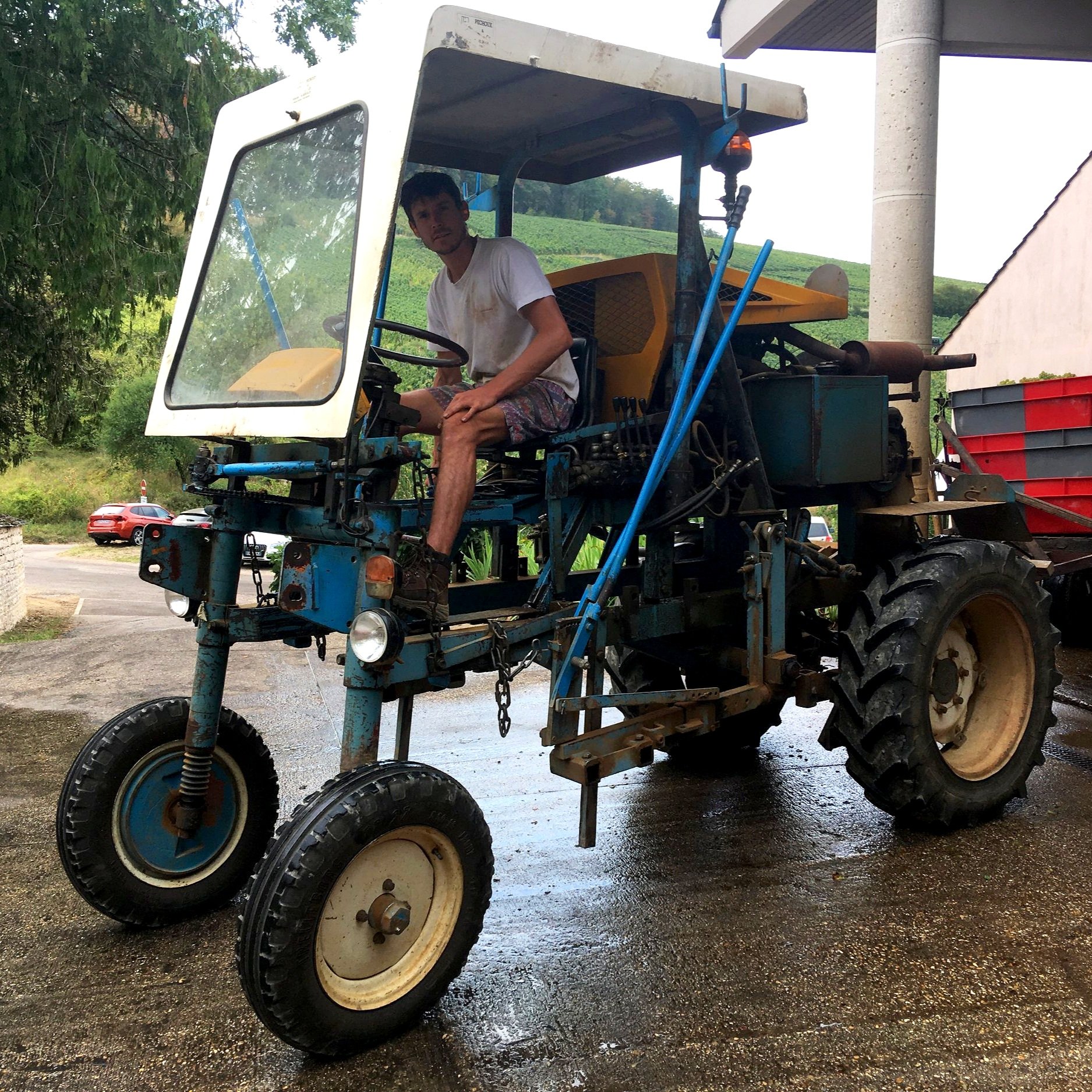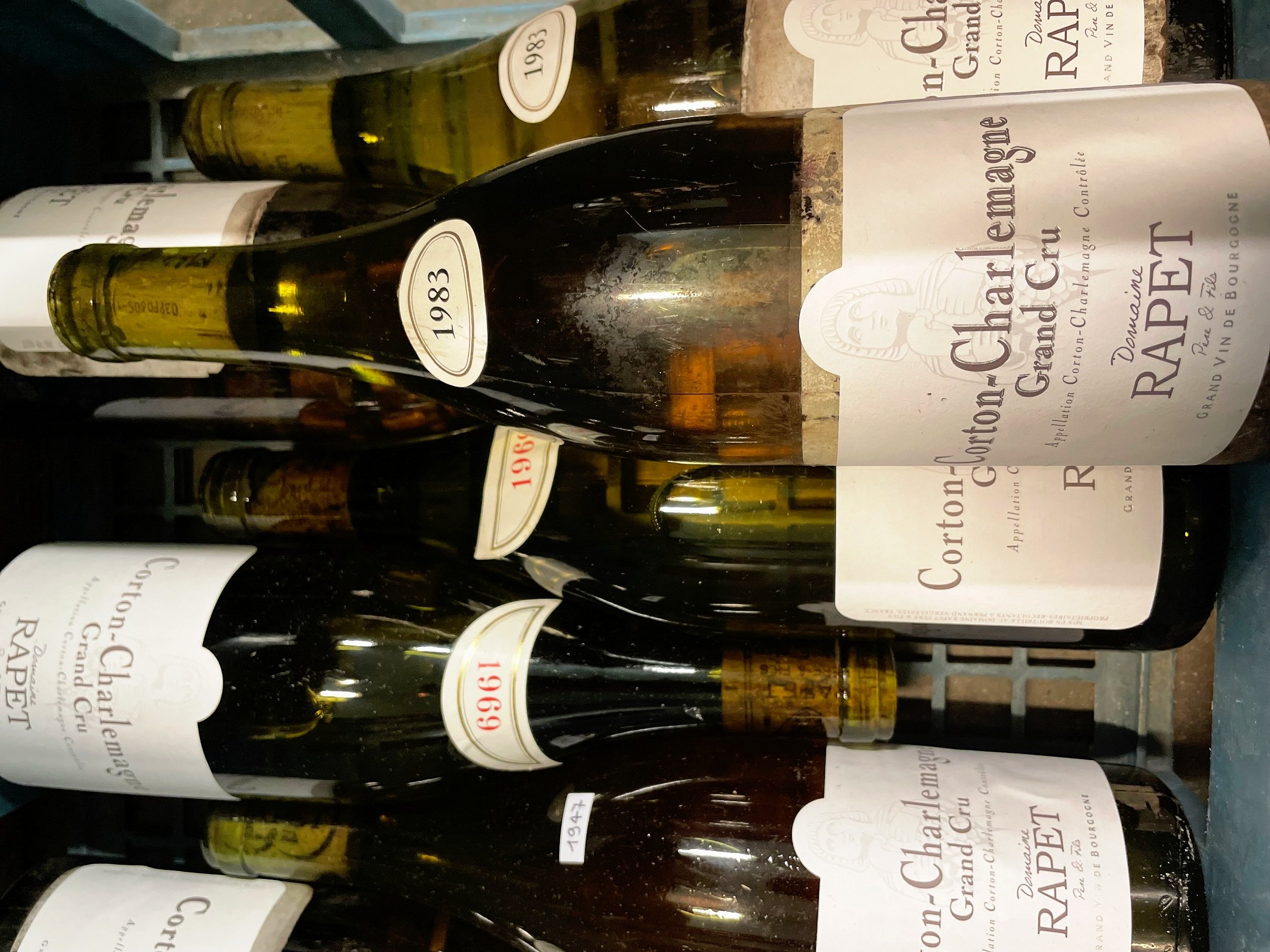In Conversation with: Sindh
Another year had just begun, which means that a fresh new beginning is on the horizon for Nachtblumen as well. During 2023, I took time to reflect and explore. I needed to find my sparks again. I needed to find a comfortable place for myself and my passion to bloom again, so expect a lot of new and exciting music, points of view, people and topics!
I am delighted to start a new journey in my blog with a special artist whom I have been a fan of for a long time, but particularly in the last year I followed closely and was inspired by. My next guest is the French DJ and Producer Louis Rapet, also known as Sindh. Recently, I had the chance to conduct an in-depth interview with him, where we talked about his artistic journey, his infinite love for modular synthesizers, inspirations, approach to life and music and much more. Stay with us and enjoy the read.
The beginning and reflections on music production
It was a cold winter day in December, right before the holidays. With the end of a long and eventful year in sight, I was very excited to meet Louis and get to know him better as my last big project, and so I started off by letting him introduce his story.
‘’I am from Beaune in France, and currently live in a small village named Pernand Vergelesses. Previously I’ve spent 6 years in Lyon for my studies and work, which was also the time that I started producing. Right now, I split my time between music and working at my family’s vineyard estate together with my brother and father. ‘’ Pleasantly surprised, I am completely drawn in the story and can’t wait to hear more.
‘’When it comes to music, I have been digging a lot since I was in college, and it was many styles, not only electronic music. I remember a lot of rap music, for example, when I was very young around 15-16. Then, when I moved to Lyon for studying, it was the beginning of Voices from the Lake, Giorgio Gigli, Perc, Terrance Fixmer and all these artists, the start of this deep techno movement and also a lot of ambient for me. I started DJing around 2010-2012 and at first it was playing for fun with friends, mixing deep techno mostly, but then I went into more psychedelic techno like Jeff Mills. In 2013 was the beginning of Ableton for me, and I also started with my first project 9beats. I met the guys from the Belgian label NORITE, and I released my first EP ‘’Deep Space’’ there in 2017. It was my first experiment with a doepfer dark energy, very primitive analogue machine and using mostly computer-based synthesizers like Ableton natives – operator, analogue, and quite basic sends.
Louis Rapet, Sindh
In Lyon I met some people from Cosmic Wave Records and we became friends. They were organising some parties and I played for them once or twice a year. Over there I did my first live sets, and experimentations with blending experimental sounds and techno.’’ Impressed by how quick he decided to attempt playing live, I acknowledged that it’s completely okay If the sound was rather simple compared to now, especially given the fact that at that time he did not have half the knowledge he does now, hence also the different approach. Louis agrees and continues ‘’ Yes, that’s true. In fact, during my entire musical journey I tried to stay far from all the tutorials and courses about how to make music, or certain elements of it. I tried to find my own way to understand the science behind it, and develop my own sound. Especially in terms of learning mixing tricks or production techniques, I tried to stay far from all that. Of course, in my opinion we are all influenced by actual music - past or present, and some artists we like in a certain moment, or tracks. Even if we think we are not, we are.’’
I completely agree with Louis and at the same time I find his approach curious. It's the first time that I hear from someone, who really thought about completely crafting their own techniques for producing without relying on general music theory. I think it’s a brave step, especially as a new producer. When people start something so complex and difficult as music production, of course this is the first level that they go to, to get things going. Discovering everything and teaching yourself on your own, seeing what works for you without feeling that you have to do things in a certain way in order to achieve a certain result is a rather unique and uncommon approach nowadays.
‘’I think the travel will be longer, but you will arrive at a point where you are not very influenced by the theoretical things. I think the same about learning playing the piano for example. People say it will help you a lot, if you know all that theoretical things like how to make melodies and so on, but for me, I am quite sure that for my projects and my point of view it will be worse if I learned this. I would know that there is a certain way that I have to respect, and now I am free from this. I don’t know anything about piano or arpeggios, or melodies, or how you are supposed to play if you play this note and then that one. By meeting so many people that actually know this, I think that this can also put you in a kind of cell that you can’t escape. Just a reflection about my musical process.’’ I can resonate with that. Theory can be your friend and your enemy, depending on how strong your creative vision and determination are inside. Louis continues to share about the first machines that he bought following his first release and live sets.
‘’I started off with some old school Electribe, drum machines like Machine Drum, MFB Tanzbar, followed by some modular stuff like Pittsburg Modular Life Form. At that time, I was still merging – using a lot operator and analogue from Ableton, VST plug ins, only native plug ins. A lot of my first EPs were made with that.
Engineering school, the infinite love for modular synthesizers and adventures in India
Learning about signal processing was helpful to understand not the creative process but the mixing process. We did abstract mathematics, so school at least gave me this tool.’’ For me personally math and accurate sciences of the sorts, are kind of the biggest nightmare – so hard to understand, but I am instantly curious whether this knowledge that Louis obtained, has made it easier for him to work with modular synthesis as well? From what I know, a big part of it is physics and in general quite scientific.
‘’Yes sure! I was kind of bad when I learned this in school actually. Only later I understood the sound pass way, which module is doing what, and the main signal process I would apply from each module to the sound. It really did help me a lot to understand it like this, but at that time I didn’t have much hardware to play with, only a few machines. I had to go to India for an internship for 6 months, which was a lifechanging experience, very interesting in terms of opening to the world and culture itself. I really enjoyed this trip. I went to Bangalore, and then North India region, Himalayan region. After my studies I went working for a few years in Chalon-Sur-Saone, and I got a house far from city life, even had some chickens and ducks, and this is when I started with modular properly. The year was 2019 and I had more time, so I was making more music. During the pandemic I created a nice studio. I spent hours looking for new modules. I was following Eurorack festivals like Superbooth and NAMM. I was keeping up with what modular brands were putting out, and what’s new in modular and new to this era. I was digging sound all that time, but also a lot of modules.’’
‘‘I think there are many approaches to modular. You decide, ‘I would make my own instrument’ mixing west coast synthesis with east coast. You are free to blend metal kind of oscillators with more techno drums. You can really make your case or you can try to make your own synthesizer. Or you can design it for a live set. It’s a very open format.’’
Having mentioned brands, I got curious if he had any favourite brands back then or maybe even right now?
‘’Not sure about it, because I have so many brands. I think many have something interesting. I like Make Noise, I think they are very nice and organic. Basically, I am fan of the Buchla sound, but at that time I had no money to buy it. A year ago, I decided to move back and work at the family vineyard, so after selling my house, I finally did buy some Buchla 200e modules.’’ says Louis with a smile on his face and goes on to add ‘’It’s very impressive sound, I really didn’t know how to get this kind of very organic and harsh sound at the same time. Sometimes we think that modular stuff is good because you can pick different ones here and there, but the thing is, I learned this through time, the brands are making their modules to work together. Sometimes you go to a few modules that are connected that work very well, because the companies create them in such a way to complement each other.
I believe this to be quite good advice for beginners in the modular world. Clearly Sindh, as an enthusiast is experimenting within a wide spectrum, where he is indeed able to handpick the ones that fit, which is every producer’s dream I suppose.
‘’I think there are many approaches to modular. You decide, ‘I would make my own instrument’ mixing west coast synthesis with east coast. You are free to blend metal kind of oscillators with more techno drums. You can really make your case or you can try to make your own synthesizer. Or you can design it for a live set. It’s a very open format. What I also find interesting is that in the modular world, there are some modules that you would never find in basic standalone synthesizers. For example, at Mutable Instruments, you can find a lot of digital ones such as the Clouds or Elements that are very complex signal processing modules. I think in the modular world they push the boundaries a bit compared to standalone machines. Of course, in the computer world you have all these effects, like granular effect, but you lose the analogue parts like analogue filters, analogue oscillators.’’
I love how in-depth Sindh goes on this topic, as in my opinion this is also one of the great ways to truly get to know an artist – via their way of thinking, approaches, choices. It’s one thing to talk about external inspirations, but completely other to dive deeper in the processes, instruments, the ways that led them to be who they are today. A valuable perspective on the artist’s mind. A coin always has two sides. Just as we love something so deeply and unconditionally because it fits us like a glove, it is not to say that it does not carry a set of challenges looking at the other side of things. I wanted to hear if there were any such challenges that come with modular or anything that Sindh actually does not enjoy about the format?
‘’What I find hard is that, it’s very difficult to remake the same thing. For example, you would record something, and let’s say you are happy with it. Listening to it a few hours later you think ‘I might have to play a bit more with this to bring more variety or so’, but it’s too late because you have already changed the patch. You can’t come back and modify like with the computer, where you can do it infinitely. At the same time, I like the fact that you can make music in your studio, but not on your sofa whenever you want, on the bed, train or plane. I like that it’s kind of a session, you play with your instrument and then you move forward. I think it’s very personal, but for me making music too much or whenever I want or at a different place just with my headphones, it’s a bit of a trap.’’
Somewhat I agree and relate to that. Definitely, when you have a designated time and space for performing a certain activity, you are much more likely to get ‘in the zone’ instead of staying on the surface of things. I think an artist never really stops being an artist just because they are not in the studio. Part of being an artist is, you also constantly thinking about your work or what you have produced. I can imagine, that if you are outside of the studio, you are still busy with what happened in there in your head. It’s good to separate the process and have time to reflect, digest and analyse before moving on with it. Even for me, when I work on a feature, after I have done the interview, I am constantly busy with the article in my head up until the very end when it is online.
‘‘I like that it’s kind of a session, you play with your instrument and then you move forward. I think it’s very personal, but for me making music too much or whenever I want or at a different place just with my headphones, it’s a bit of a trap.’’
‘’Yes totally. There is also the danger that if you stay too long in the studio, you can get blocked and that’s also not good. A balance is needed. The second thing I wanted to share about modular is that it depends on what you are looking for in terms of sound design. For me it will be noisier, more like soft overdrive. If you want the pure sound and no noise at all, modular is not the thing for you.’’ That’s what I’ve grown to love about modular sound – it has the edge. It has something that’s imperfect but that makes it perfect. I find Louis’ production experience so far fascinating, because I sense a very pure and honest form of passion for music and the craft itself. I want to circle back to some other things that he mentioned like the trip to India. 2023 saw the release of his debut album ‘’Gupta Tribes’’, which was communicated to be inspired by an ancient tribe in India. Now that I am hearing about the preceding life events of the young artist, I am connecting the dots and I wonder, was that theme sparked by his time spent in the country? In general, if I look at the forthcoming release on A-Biotic, there is also an inspiration rooted in ancient cultures or places. It makes me think that Sindh is someone with a broad spectrum of interests outside of music.
‘’I think the album is more infused with the feelings I have for this country. I like the Indian instruments. I like yoga, I like the philosophy of India. In this album I tried to infuse the climate and the energy I feel there. Trying to use real instruments like flutes, drums, djembe, frame drum, wave drums, maracas, bongos, all kind of things I can record with. It’s more a kind of energy I try to transmit, so the album is not really dark and a bit melancholic in my opinion. It’s not pure dark drones but it’s not happy sounds either. For me Indian music is a bit like that – meditative music. Not happy not dark just in between. Very long sitar, tabla or drum improvisations. The album is infused with this energy.’’
The energy in Sindh’s music, being a DJ and life on a vineyard
I love learning more. As someone who has never been to a place like India, my curiosity and my imagination run deep. I do know that in Hindu culture and all Eastern teachings, energy is a big thing. I wonder if Sindh believes in it the same way, or consciously works with energy in his music in order to transmit to the audience. ‘’Last years I am more focusing on the sound and the spirit of the music to bring the listener in a kind of state. A reflection state and a liberation one too, more intriguing, and with more thinking involved. Sometimes there is a bit of sci-fi influence, but overall mystical. I am trying to go in that direction with my audience. That’s what I like personally, that kind of infinite ambience, very mystical and powerfull sound.’’ Is the desired state, the very same that he is in while making the music in his studio, I ask and Sindh goes on to answer ‘’Indeed, it is what I try to do in the studio. I know myself, after all these years making music, what I am looking for is that feeling of sound penetrating the body. That thin line between too dark and that middle space.’’ That’s one of the things that I love the most about his music – the comfortable darkness that sooths me internally, and gives me the space to look inwards and think about my own life. Sindh normally achieves that though his complex grooves and shamanic rhythms combined with mesmerizing ambient atmospheres and percussive elements. Some of the young artist’s other releases also give the feeling of space and comfort, like for example the ‘’Kalahari’’ EP on Valentino Mora’s label IDO released in 2021. I am curious how that came about and in general, how does he choose the labels that he releases his music on. Is it a somewhat special process, or based on a personal connection?
‘’As I said before, I try to stay as much independent as possible, and that goes also for labels. If a label asked me to make something for them, I think it would change my creative process. It will go in a certain direction and I want to be free from that. What I do is, I am working on my side and when I have something that I feel is good, I look for someone who will be interested in it. Projects come naturally. That’s how I found IDO as well. I just sent Valentino the tracks and it was actually an album but we turned it into an EP.’’ My reflex instantly goes at ‘What happened to the rest of the tracks?’ Louis laughs and continues:
‘’They are still on my computer. I have played some in live sets. In general, I think it’s important to stand back from mass production and just put the best out. We are living in a world of overproduction in all domains, and music too. If you think about it, there are tons of releases every day. I think it’s better to stand back and keep the best for releasing. Even with the ‘Gupta Tribes’ album I was about to not release it. I sent it to two labels and they didn’t accept it, because I was asking for a vinyl. Eventually I found a way to put it out on my own, but I am okay with ‘throwing some tracks away’ when needed. I only want to keep the best out. I think the overproduction of music is also a kind of pollution. This is just a personal reflection. On the other hand, in the case of my release for Lowless, the ‘’Komo’’ EP from 2022, I was asked from the guys behind the label, as we are very good friends. It took some time, and I kept the offer in mind but I fully focused on my sound.’’
‘‘We are living in a world of overproduction in all domains, and music too. If you think about it, there are tons of releases every day. I think it’s better to stand back and keep only the best for releasing.’’
From what I am hearing, Louis is someone who prefers to work on his own timeline. He agrees and goes on to add:
‘’When you independently work on a piece of music, instead of creating something specific for a label, you are more free in the creative process. There is no bias about how the music should sound based on what the label catalogue is.’’
Fair enough. Connecting all the dots of our conversation till now, I gather that I am interacting with an artist, who is very patient about their development and growth. It’s not something that we see often nowadays, in fact the current landscape of music feels the opposite: people want a shortcut to success, they want to be faster, bigger, louder, impatient to get somewhere, not really caring how as long as they do. If you want to keep your values, you need to be okay with accepting that things will happen slower. I imagine for an artist that is a difficult task, as they put so much effort and work, emotion and love, and surely want to achieve certain milestones or goals quicker, and be able to reach people with their music. But at the end of the day, you have to be happy with yourself and how you got there, instead of wake up one day and think to yourself ‘Who am I?’. As a booker at an artist agency, I have the honour to work with an artist very likeminded to Sindh speaking of values, and I deeply respect the approach. I learn from it every day. Sindh continues the trail of thought: ‘‘It’s important to think, ‘This EP or album, when I listen to it in 10 years is it just a copy of hundreds of things that have already been made, or is there something special in this that I feel like I need to share with people?’ ‘‘
‘‘It’s important to think, ‘This EP or album, when I listen to it in 10 years is it just a copy of hundreds of things that have already been made, or is there something special in this that I feel like I need to share with people?’ ‘‘
I could not agree more. Having discussed making music at length, I wanted to ask about playing music. Clearly, it has been a natural progression from listening, to playing to producing, but where does he stand with DJing now? ‘’I am happy with DJing right now. I am digging a lot and I went to some clubs recently and it was very nice. My future release, after the A-Biotic one will be more dancefloor-oriented. For the past 10 years I went to festivals and parties often, because I like to dance and I like the night energy, so I am now focusing more on digging and DJing and buying some vinyl. I am also preparing a live set that will be more progressive techno-oriented, with the club and dancefloor in mind. I think if I’m not DJing more it’s because most of my productions are rather chilled.’’
The sets that I’ve heard from Sindh are indeed the definition of sound exploration, but not only. There is a balance and that’s what I like. For example, in the beginning of 2023 there was a set he recorded for Monochrome, and I got obsessed with it. Personally, 2023 was a year of transformation in music and sound, because I started to listen to a lot more progressive, trancey, IDM-infused, halftime, DnB infused techno, which to be honest by now it kind of forms a genre on its own but I personally don’t have one word for it that describes it well. Essentially, when I think back to this set, it is that immersive unexpected evolving experience, which is how I imagine a DJ set by Sindh would be. Having mentioned a live set, I got curious where does he plan to debut it?
‘’I have some plans, and I think the live set will be ready around April 2024. I’ve got some festivals lined up, where I will perform it. Additionally, I have some plans and projects with my friend Vardae. We started experimenting with each other in the studio and we will see how it goes.’’ What an interesting combination! I know Vardae for going in crazy DnB depths, but he is also a sound explorer in his essence. ‘’As a DJ I think it’s hard to find your place. It’s a lot of networking.’’ Says Louis.
Indeed it is difficult, especially with his approach - values and music first and everything else after. As a booking agent, I know how hard it is to break though the noise, but in my eyes, it is the more rewarding way to success. Fewer gigs but connecting with truly likeminded people that appreciate your work is worth far more than a stacked weekend travel schedule full of impersonal interactions and transactions. In time, quality artists always get where they need to be! Circling back to the festival that he mentioned earlier, which he organizes with his friends in the French country side. I wanted to know more.
‘’Yes! The name of the festival is Pan d’Or. it is small, about 300-400 people on our land in Burgundy. It’s a 2-day festival and it’s growing year after year. Basically, we get artist friends to perform quality music. The energy is very powerful, because the public is a mix between local people that love partying but aren’t purist, combined with people who know the deep techno or trance world. It has also affected my sound. In my new EP “Andaman” there is a bit of trance influence, for example in “Hinam” or “Mehandi”. I’m working on the line up of the festival with friends that are very much into old-school progressive deep trancey stuff. The festival has a main focus on various kinds of dance music, but with a hypnotic deep approach.’’
Within the hypnotic realm, I feel like we are blending more genres together lately. I enjoy that so much more nowadays. It’s already hard to put it into one definition, but that’s also the beauty of it. I can speak for myself, but finally I’ve got sparks again, I’m excited about music again, I’m excited about discovering. Of course, during the pandemic, everything felt the same, or I have simply been in a loop where I always chose the same things or similar. The only thing that helped me get back my inspiration about music and being part of the scene and being curious, is actually blending all the genres together and not putting things in a defined box, pushing the boundaries as far as possible. Sindh comments on my reflections:
‘’I totally agree. Since a while I was feeling that the deep techno scene is turning around, that’s why I tried to escape this by trying new things and pushing the boundaries a bit.’’ Yes, it’s turning around, but it’s about finding our own place and what we like. When we have the chance to create an experience for ourselves like what he does with the festival, I think that these are the moments. I actually don’t know much about the French scene. So, I got curious to know more about the area where he lives, as it sounds like there is an interesting community?
‘’Here there are very few people involved with music apart from my close friends. I still have a lot of contacts in Lyon, where I used to live. I also want to create something here, bring back the parties, enjoy the music. People in the country side are energetic and they are not like big city people who are tired of going out every weekend.’’ To me it’s fascinating the place where Louis lives – away from city life, connected to nature so peaceful and calm. My last bit of curiosity revolves around Louis’ other job – being a winemaker. It’s also kind of an emotional and creative process, and in addition working with his family must add another layer of special feeling. Is making wine a passion of his? Does he find similarities between that and making music for example?
‘’My father has the estate since a long time. I think it dates back to 1765, and it has been about wine even then! Yes, I am into wine since a very young age. I have a big passion for wine tasting. Every weekend with my father, girlfriend or friends we do it. I am very proud of the wine we are making. I don’t have school education about wine, but I learned because I used to work in the vineyard every summer since I was 18 years old. I basically learned by doing on the spot. Next year, I will do a tasting formation to learn more about technical tasting, chemicals, how to process. Here in the place, I live, we are in a very special place in France named Cote D’or, it’s a small wine area with very famous wines. We have time to make everything very nice and good. It’s very interesting when you work on a vineyard here. This area is amazing – good wine, good parties.’’
‘C’est la belle vie’ as the French would say! I need to ask this though: What about natural wine? Do they also produce that with the family and what is his opinion in general on it? I personally, do not have in-depth knowledge, but one of my closest friends is a huge fan and enthusiast who always shows me the gourmet life and teaches me everything about good wine. I kind of owe him this question, and luckily, I can get the opinion of a real winemaker!
‘‘The philosophy here is very old. Our wines are famous, because you can keep them for many years.’’
‘’Right now, in my vineyard we are making organic wines, but not natural wine. The philosophy here is very old. Our wines are famous, because you can keep them for many years. Last year, I opened a bottle from 20 years ago, and sometimes we do from 40 or 60. They will gently evolve in something different. Some new flavours will come. It’s also a very important part of our philosophy about making wine. We made some tests with natural wines, it tasted good, but we have had also very bad experience with it. If you buy a bottle of ours, we want you to recognize it. We want the soil to speak. There are excellent people making natural wine, but very few in my opinion. There is a big trend for it at the moment in Paris for example. For me it’s just two different approaches. I have a good friend producing amazing natural wine and if you open one bottle and then another, they will be the same, because you have a very strict process, very meticulous and clean. In my estate We want to reflect the soil, the land, the sun. With natural wine as you don’t put sulphites, it can evolve quite quickly into random tastes we are not looking for, so you can’t keep it for 10 years. You can maybe drink it maximum 5 years later. I respect both philosophies!’’
After such a sincere and elaborate answer, I am grateful for the insights and once again open to conventional wine. Overall, the life of Sindh as he shares it – combining good music, good nature, and good wine sounds like the recipe for a good life! I often forget that when you take time to slow down, be patient, let things come naturally and savour every moment, you are actually happier and more fulfilled. This conversation has been a good reminder of that, for which I am grateful to Louis. To finish our lovely chat, I wanted to touch upon his future projects once again.
‘’Just to set the mood. Right now, I’m listening to a lot of progressive trance from the 2000s. Artists like Son Kite, Massive Vivona, Human blue, that are very early deep techno, but a lot more groovy. What we miss in the deep techno is the groove that you have in techno in house and in trance. So, I am working on these kinds of projects right now. The live set I’m working on will be ready soon – still very hypnotic and shamanic but with a bigger focus on dancing.’’
This is literally music to my ears, and with that we concluded our interview. I hope that all of you have managed to dive deeper into the world of Sindh. A world of many colors, emotions and thoughts. A world, full of infinite sound exploration and incredible timeless music. As a special treat, Sindh recorded a podcast for all of you dear Nachtblumen. Press play and enjoy the ride.

